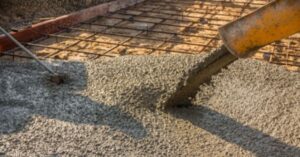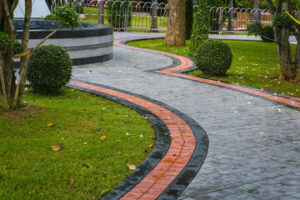Concrete Contractor Colorado Springs is well-versed in the process of pouring concrete. They understand the importance of meeting client expectations and delivering on their promises.
They also use business technology that simplifies tasks like submitting bids, tracking project timelines, and documenting progress on the job site. This makes them more competitive in construction and fosters long-term client partnerships.

Concrete contractors work with the factual material daily. As such, they have in-depth knowledge about different types of concrete and how to construct them properly. This expertise allows them to create durable structures that withstand the elements and wear and tear. They also have experience working with commercial concrete projects. These projects usually require larger amounts of concrete and may need specialized techniques and equipment.
When hiring a concrete contractor, you should ask about their experience in the industry and how long they have been in business. They should also be able to provide references from previous clients. This will help you determine whether they are the right fit for your project.
Another important factor is their license and insurance. A quality contractor will have a valid license and liability insurance, protecting you in case of any accidents or damages on the job site. Additionally, you should check if they have a certification in concrete construction.
In addition to a license and insurance, it is also crucial for a concrete contractor to have a good track record. Look for reviews online and ask to see photos of past projects they have completed. This will give you a better idea of their skills and expertise and help you choose the best contractor for your project.
Additionally, you should ensure the concrete contractor has the necessary equipment to complete your project. They should be able to handle large volumes of concrete and have the proper tools for the job. Also, be sure to ask if they have any safety policies in place to ensure the health and safety of their crew.
Finally, it would help if you asked the contractor about their work schedule and timelines. This will help determine whether they can complete your project promptly and within budget. It would help if you also inquired about their ability to obtain a permit for the project. This is important because some municipalities have specific requirements for commercial projects. A reputable concrete contractor will be able to get the permit quickly and efficiently, which will save you time and money.
A concrete contractor must have a license to work as a professional in the construction industry. A license is a requirement for many commercial projects, and the contractor must have a working knowledge of local building codes and regulations. They also need to be familiar with various types of concrete and how to mix and pour it properly. In addition, they must be knowledgeable about the equipment used to work with concrete, including mixers and construction vehicles.
Concrete contractors have a lot of responsibility, and their work is crucial to the success of any project. They must work well with architects, engineers, and other construction professionals to ensure their concrete work meets the project’s design specifications. Additionally, they must be able to complete projects on time and within budget.
Besides pouring and finishing concrete, they may be responsible for site preparation and other tasks related to constructing concrete structures. They can also perform repairs and make changes to existing concrete surfaces. In some cases, they may be required to install reinforcement for the concrete structure, and they must follow specific standards for their work.
The job of a concrete contractor is difficult and dangerous, so it’s important to find a reputable company. Choosing a company with extensive field experience and comprehensive services for residential and commercial construction projects is best. Additionally, the company should be licensed by the appropriate authorities in your area and have a good track record.
Regardless of your project’s size and scope, obtaining the proper permits before beginning any work is essential. This will ensure that your construction is in compliance with local regulations and will protect you from legal complications down the road. If you need help determining what permits you need, check with your local government or contact a concrete contractor who can assist you.
Concrete work is messy, and it can be challenging to keep your home clean while the work is underway. You’ll want to choose a contractor who has experience cleaning up after themselves and will keep your house as safe as possible while working on your project. Moreover, you should only hire a contractor who provides a written estimate after the job begins. This will help you understand the costs involved and any hidden fees that may arise.
Concrete contractors are responsible for the foundation of many buildings and major structures. As such, they must ensure they carry the proper insurance coverage to protect their business. It’s not uncommon for clients to refuse to work with a contractor that doesn’t have the necessary coverage. Hefty legal costs could potentially cripple a small business, so the right coverage is critical.
General liability insurance is one of the most common policies for concrete companies to carry. It covers the cost of a lawsuit against your company if someone claims your business damaged their property. The policy typically includes per-occurrence and aggregate limits of $1 million to $2 million. It also provides defense costs, court fees, and awards or settlements.
Workers’ compensation is another important part of concrete contractor insurance. It pays for medical expenses and lost wages if an employee is injured while working on a project. This is a requirement in most states, and you should make sure your employees are covered in case of an accident.
Concrete companies often use construction equipment and tools in transit or stored at different locations. Inland marine insurance offers financial protection for these items when not attached to a fixed business location. This is an additional layer of insurance separate from your standard commercial property insurance.
Other types of insurance often included in concrete contractor insurance have professional indemnity and commercial auto insurance. Professional indemnity insurance, or errors and omissions (E&O) insurance, protects your business from financial loss when a client claims that you have made a mistake in performing the job. Commercial auto insurance offers protection if your employees drive a vehicle on behalf of the business, and it may be a requirement in some states. Lastly, builders’ risk insurance is often purchased by concrete companies to cover any damage to a building while it’s under construction. This is a common addition to the general liability insurance policy, and it can provide a significant amount of coverage for a relatively low cost.
Concrete contractors use their skills to build residential, commercial, and industrial structures. They often work with other contractors to create the building structure, but they also may be responsible for laying the foundation or installing concrete surfaces such as floors and walls. To succeed in this career, a contractor must be able to manage several aspects of the business, including finances, scheduling, and bidding. They also need to understand the technical details of working with concrete, such as the strength and durability of different types of concrete.
A professional concrete contractor will have a portfolio of previous projects that show their work style and quality. This is a great way to give potential clients confidence in hiring them for their next project. Whether posted on their website or passed to them personally, the portfolio should be easy to navigate and provide information about each project. It should also include testimonials from past customers and industry recognition.
For example, contractors specializing in decorative concrete often have a coffee table book illustrating their finished work. A well-designed and easy-to-use portfolio can help a client make the right decision. Service should organize it with separate pricing or contact information pages. A busy customer will appreciate quickly finding the information they need.
When a client hires a concrete contractor, they usually expect a complete and accurate estimate of the project’s length. A project management software geared toward concrete contractors’ needs helps prevent misunderstandings between parties by tracking the progress of each phase and providing accurate data to the client. This is particularly helpful for the foreman who must accurately complete daily reports.
Using a software system based on concrete contractors’ needs can help the supervisor stay on track and keep the job on schedule. It can also help to determine the efficiency of labor and materials for each phase of the project and identify any mistakes that could be costly in the future.
